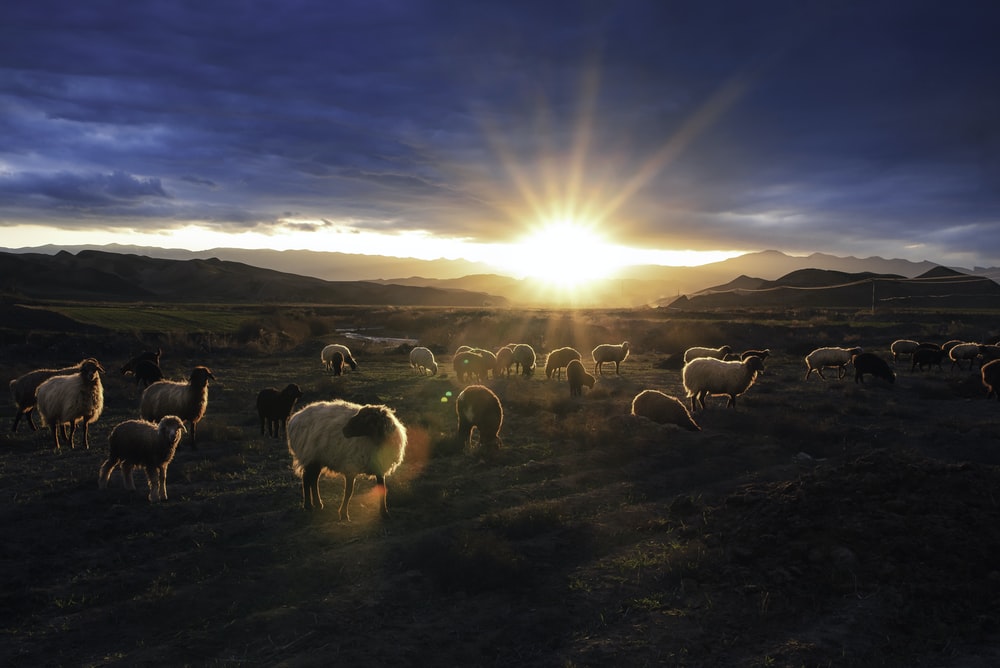
One of the worst things you can call someone in today’s world is a sheep. Today the word connotes someone without an identity who follows a crowd of other like-minded sheep. But 2000 years ago, a man identified his followers as sheep, and himself as their shepherd. And he identified with THEM too. That man would be Jesus the Christ.
“My sheep hear my voice, says the Lord; I know them, and they follow me,” we read from John’s gospel (Jn 10:27). And Mark tells us that when Jesus saw a vast crowd seeking his guidance, “his heart was moved with pity for them, for they were like sheep without a shepherd; and he began to teach them many things.” (Mk 6:30-34)
One of those things was to love each other as he loved them. That requires knowing each other as he knew us—as individuals, not as numbered sheep. As a parent of two adult sons whom “specialists” label as “autistic,” we’ve experienced through them what it’s like to be known as a condition rather than a person. Though both sons were blessed by God with unique gifts and beautiful personalities, some people lump them together as being the same kind of “special.” One acquaintance of ours even asked, “Do you ever have a hard time telling them apart?” I told him that I was surprised at that question. My surprise was at the fact he couldn’t see beneath the labels our society puts on some of its children.
So imagine my surprise when I saw myself exhibiting the same kind of myopia before friends who’ve parented five children–all of whom have grown up to create for them 15 grandchildren. “Do you have trouble remembering your grandchildren’s names?” I asked. My friend’s wife looked at me funny–just as I must have looked at that person who asked how I can tell one son from the other. To her, my inability to see God’s individuality in the big, beautiful family they created together must have been just as insulting.
So it’s probably that way with God our Father, when we fail to recognize all of his children for what makes each one of us “special”—what makes each of us so unique in His eyes that “our very hairs are numbered.” (Luke 12:7). It’s much easier for us humans to see humanity as a herd as opposed to being God’s loved ones. Even as a human, we can become overwhelmed when looking at everything else God created, and wonder, just as the psalmist did, “What is man that you are mindful of him, and a son of man that you care for him?” (Psalms 8:5)
As one who started out as an expert in persecuting people by groups, St. Paul eventually learned that he had a much more important destiny in front of him: as one of the many unique members of the body of Christ .
As a body is one though it has many parts, and all the parts of the body, though many, are one body, so also Christ. … Now you are Christ’s body, and individually parts of it. (1COR 12:12)
That’s what he told the Corinthians, but as we hear in this Sunday’s second reading from his letter to the Ephesians (Eph 2:13-18), he teaches the importance of those parts working in concert:
For he is our peace, he who made both one and broke down the dividing wall of enmity, through his flesh; … thus establishing peace, and might reconcile both with God, in one body, through the cross, putting that enmity to death by it.
But as we in today’s world see how easy it is to fall into division by group-think, we can benefits from a bit of the Old Testament wisdom we get from the prophet Jeremiah in Sunday’s first reading (Jer 23:1-6), as he uses the word of God to comfort many scattered and lost sheep:
I myself will gather the remnant of my flock from all the lands to which I have driven them and bring them back to their meadow; there they shall increase and multiply. I will appoint shepherds for them who will shepherd them so that they need no longer fear and tremble; and none shall be missing, says the LORD.
This modern world gives its sheep many reasons to fear and tremble, some of which present as wolves in sheep’s clothing. But if we can get as good at appreciating our shepherd’s presence in our lives as he is at celebrating the specialty with which he blessed each one of us, we might yet achieve herd immunity from the evils of fear-imposed anonymity.
–Tom Andel